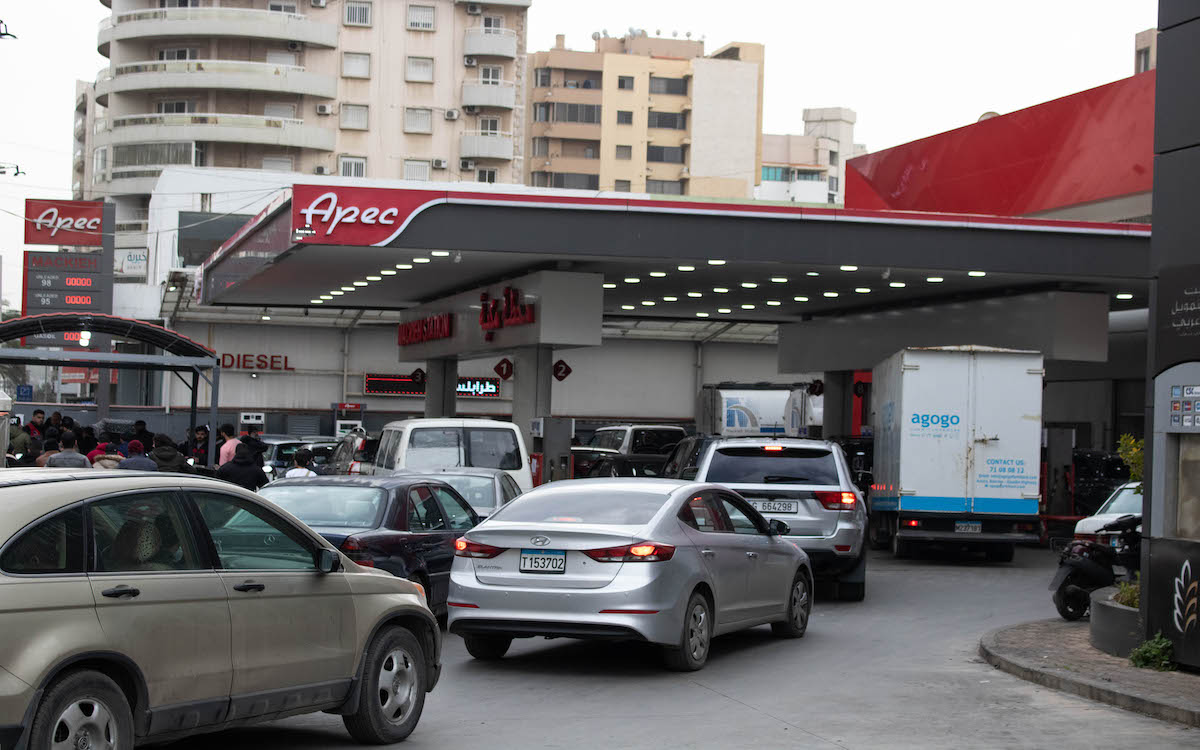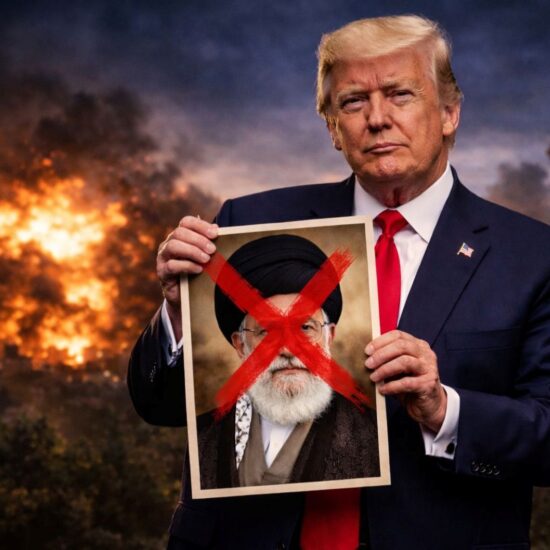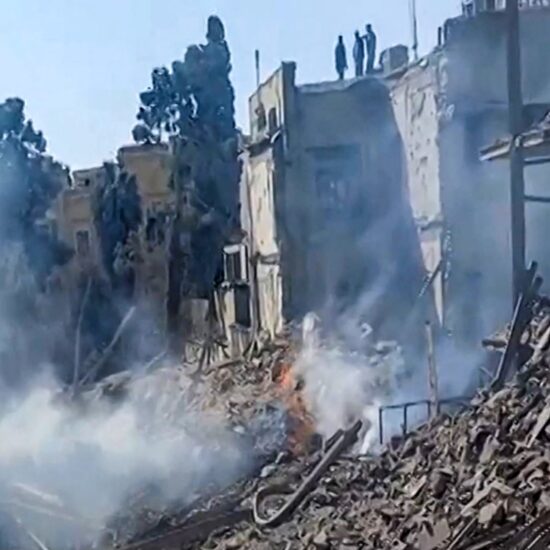
Since the summer of 2021, there have been off and on fuel shortages throughout Lebanon where many gas stations refused customers because they say that they have no fuel, leading to long lines of cars at the stations that do have fuel.
Last week saw this same problem, albeit on a smaller scale than in the past.
This came as fuel prices continued to rise amid Lebanon’s ongoing economic crisis, with gasoline on the verge of surpassing 700,000 lira for 20 liters and diesel reaching 750,000 lira.
The representative of fuel distributors in Lebanon, Fadi Abou Chakra, told LBCI that there was no fuel crisis and that any problems would be sorted out by this week.
This might have just been a brief scare that led to people panic-buying fuel upon rumors of a shortage, but it is indicative of the situation in the country.
Lebanon’s population is living on the edge, and there is no end in sight.
Sure, this time the fuel situation might have been taken care of quickly and there was no major crisis.
But what about next time?
Lebanon is in a state of limbo until the politicians finally implement solutions to the various crises that the country is facing.
Up to this point, any government action has only provided temporary relief and has had no real long-term benefits. Eventually, it is all going to come to a head and there will be no short- to medium-term solution that will pull the country back from falling off of the cliff.
In Lebanon
A new deal: After a couple of weeks of making a big fuss about Line 29 being the true demarcation line of Lebanon’s maritime borders with Israel, Lebanon is apparently changing its mind. Line 23, which was what Lebanon originally proposed, and the Qana fields, are now claimed as the actual borders.
The change in stance came after the US mediator, Amos Hochstein, visited both Lebanon and Israel in an attempt to calm tensions between the two countries after Israel announced that it was going to dig for gas in the Karish field.
Supposedly, President Michel Aoun told Hochstein that Lebanon will end its claim to Line 29 and the Karish field, but they would have to get the entirety of the Qana field and would not share any part of it with Israel.
Israel has yet to respond to Lebanon’s proposal.
Lebanon the explorer: In the hopes of finding offshore gas and oil repositories, Lebanon has extended the licensing deadline for oil and gas companies to explore Lebanon’s waters until December 15.
Initially, Lebanon gave French Total, Italian ENI and Russian Novatek the rights to begin development in two of 10 blocks in 2017 but they found no viable amounts of fuel in either Block 4 or 9.
This new round of licensing will encompass the remaining eight blocks.
The announcement of the extension came after Aoun met with Hochstein to discuss the Line 29 dispute.
Sign on the dotted line: Lebanon will sign a deal with Egypt on Tuesday to import some of Egypt’s natural gas in an attempt to add some relief to the electricity crisis Lebanon has been facing for a year now.
The project, which is to be funded by the World Bank, would see Egpyt send some of its natural gas reserves through Syria to Lebanon which Lebanon would then use to produce a few extra hours of electricity per day.
The deal was supposed to be signed months ago, and it remains unclear when the gas will ultimately be sent to Lebanon and how long it will take for the country to start producing electricity.
The World Bank has also not said exactly what its conditions would be for them to help fund the project.
The death of a child: The al-Masri family desperately tried to have their young daughter, one-year-old Yasmin, admitted to multiple hospitals, initially in the north of the country, since she was vomiting and overheating, but were repeatedly turned away. By the time she was admitted to the Haykel Hospital in Koura, she died.
According to Yasmin’s father, they first went to the Islamic Hospital in Tripoli which turned them away because there is no pediatric section. They then went to Nini Hospital, also in Tripoli, who initially admitted Yasmin to the emergency department but ultimately requested that she be transferred because there was no department for the baby. Finally, they were supposedly refused entry by Haykel Hospital because they could not afford to pay the $1,000 for treatment.
Haykel Hospital refutes these claims, saying that she was admitted to the emergency department and they immediately began running tests and treating Yasmin, adding that they have security cameras that show her being admitted and looked after.
The Ministry of Public Health, on Monday, announced an investigation into what occurred, with the family going to the Ministry on Tuesday to tell their story.
A form of justice: The Special Tribunal for Lebanon sentenced two Hezbollah members to life in prison in absentia for the deaths of former Prime Minister Rafik Hariri and 21 others in 2005.
Hassan Merhi and Hassan Oneissi were the second and third members of Hezbollah found guilty of the killings after Salim Ayyash was found guilty, also in absentia, during an initial verdict in 2020.
Hezbollah has refused to hand over the three men, saying that the tribunal was politically motivated and meant to attack and discredit Hezbollah. The Lebanese state has also made no attempts to apprehend and turn over Ayyash, Merhi and Oneissi, although Lebanon very rarely extradites its own citizens.
A new government: President Aoun will hold a parliamentary consultation on Thursday, June 23, to begin selecting a new prime minister to form a government after the May 15 parliamentary elections.
The current prime minister, Najib Mikati, is likely to be tapped to form a new government, but not everyone is on board with his nomination.
The newly elected opposition MPs are supposedly looking at other names to nominate to lead the government, with Nawaf Salam, the former president of the United Nations Security Council and who currently sits as a judge in the International Court of Justice, being floated around as a possible candidate.
Other parties, such as the Lebanese Forces and Kataeb, are also looking at candidates other than Mikati.
Should there be no majority to elect a candidate, there will be a political deadlock until a name can be agreed upon. Politicians have until the end of October, when Aoun’s term as president ends, before potentially plunging the country into another political crisis.
A sign of the times: The armed Shiite group Hezbollah removed its billboards on the highway leading to Lebanon’s airport after the government requested that they do so.
For years, Hezbollah lined the highway with images and slogans for the party and Iran, often depicting fighters and commanders of the militant group that had been killed.
The signs have since been replaced with tourism promotions.
Dirty water: After hundreds of cases of Hepatitis A were reported in north Lebanon, the Ministry of Public Health said that it has discovered the likely source of the outbreak.
According to the ministry, the infection spread after wastewater got mixed in with drinking water, leading to the outbreak.
The Ministry urged people to take safety precautions and preventative measures in order to curb the spread.
Due to the economic crisis, it has become virtually impossible to secure the Hepatitis A vaccine, but the Ministry said that it is working with international organizations to secure doses.
Monkeying around: Lebanon recorded its first case of monkeypox on Monday as cases spread throughout the world.
The individual who contracted the virus came from abroad and is currently isolating.
Unlike coronavirus, which can spread rapidly in a crowd just through air transmission, monkeypox requires close physical contact, often sexual, in order for it to be properly transmitted.
So far there is no reason to believe that there are more cases inside Lebanon.
Covid-19 Update: Lebanon’s coronavirus cases have shot up dramatically in the past week, surpassing 400 cases per day.
#COVID19 cases in #Lebanon increase by 447 and one death. The total is now 1,103,711 cases and 10,453 deaths. #CoronavirusUpdates
تسجيل ٤٤٧ إصابة جديدة #كورونا في #لبنان و وفاة. المجموعة ١،١٠٣،٧١١ إصابة و ١٠،٤٥٣ وفاة. #كورونا_لبنان pic.twitter.com/ndbhdxp2IB— Nicholas Frakes | نيكولاس فريكس (@nicfrakesjourno) June 19, 2022
Just a few weeks ago, Lebanon was registering, at most, just over 100 cases per day.
In the region
Drone strike in Iraq: Four Kurdish militants were killed in a Turkish drone strike on Friday in Iraq’s northern Kurdistan region.
Those killed came from the Kurdish Workers Party (PKK) which is designated as a terrorist organization by Turkey, the US and other countries.
The PKK has led an insurgency in southern Turkey since the 1980s, which has led to the deaths of thousands of people.
This was the latest in Turkey’s attempts to clamp down on the PKK’s activities in Iraq.
The bullet: Al-Jazeera has released images of the bullet that it claims killed its veteran correspondent Shireen Abu Akleh while she was reporting on Israeli raids in the Jenin refugee camp in the north of the West Bank.
According to the broadcaster, the bullet was a 5.56mm round that was fired by an M4 rifle, both commonly used by the Israeli military, with Israel saying that Palestinian militants also use the same rifle and type of bullet.
Israel says that it could confirm what rifle fired the bullet if the Palestinian Authority, the governing body of Palestine in the West Bank, turned it over to Israeli investigators, something that the PA has refused to do, arguing that Israel could not be trusted to lead a fair investigation.
On top of this, an Israeli police investigation into the attacks by Israeli police at Abu Akleh’s funeral found that the police had committed misconduct, but none of those who supervised the event will face any serious consequences.
The report said that the police were justified in using violence at the funeral, but that they should have refrained from using clubs.
Heightened tensions: After a two-month lull, a rocket was fired from Gaza into southern Israel by Palestinian militants on Saturday as tensions continue to rise amid ongoing violence in the West Bank.
The rocket was intercepted by Israeli air defense systems.
Shortly after, Israeli jets performed airstrikes on four alleged Hamas military sites in Gaza.
A problematic verdict: Mohammed al-Halabi, an aid worker in Gaza, was found guilty by an Israeli court of using funding from his employer, World Vision, to support the militant group Hamas, something that both World Vision and the Australian government deny.
El-Halabi has been in detention since 2016 and has repeatedly denied the allegations.
According to two independent audits, one by World Vision and another by the Australian government, World Vision’s largest single donor for the organization’s operations in Gaza, there was no evidence that el-Halabi ever misused funds to help Hamas, rather, finding that he did the opposite and worked to ensure that the funding that he and the organization received were only used for their intended goals.
Israel claims to have evidence that Hamas had infiltrated the organization and that el-Halabi was a member of the group and actively supported them.
El-Halabi has not been sentenced yet and is likely to appeal the verdict.
Rejoining the fold: Syrian President Bashar al-Assad received the credentials of the new Bahraini ambassador to Syria on Sunday as Syria continues to normalize relations throughout the Arab world.
Wahid Sayyar was first appointed ambassador in December 2021 but had only recently moved to the Syrian capital Damascus.
Bahrain initially reopened its embassy in Syria in 2018.
Syria was largely ostracized by much of the world after the country’s long-running civil war broke out, but, in recent years, as Assad has secured more and more of the country, an increasing number of Arab states have begun normalizing ties with Syria in the hopes of limiting Iran’s influence in the country.
What we’re reading
Agricultural troubles: With the climate crisis worsening throughout the world, NOW Lebanon’s Philippe Pernot looks at what needs to be done in order to prevent a disaster in the agriculture sector.
Me too: For female reporters, facing harassment while working is nothing new. Now, with more and more women speaking out about their experiences in the hopes of harassers being held accountable, women in Lebanon have a new obstacle, the legal system itself. NOW Lebanon’s former Managing Editor Ana-Maria Luca discusses this in her most recent piece.
Polluted skies: Lebanon’s skyline has long been lauded for its beauty, but few can ignore the haze of pollution hanging above most major cities. Philippe Pernot looks at this crisis and how the economic crisis only served to exacerbate the problem.
The shadow: When former President Donald Trump pulled the US out of the Iran nuclear deal, it instantly set the tone for what would come next. Iran began developing its nuclear capabilities once more and, even as the Biden administration attempts to reenter the deal, Iran is hesitant to do so when whoever comes next could just pull the US out once more. Michael Crowley and Lara Jakes analyze how the spirit of Trump continues to haunt this deal and the ongoing negotiations.
Taste the rainbow: Saudi Arabia has seized various toys and products that are rainbow-colored, claiming that they promote the LGBTQ+ community. The same thing happened in Hama, Syria as well as in other places around the region. Annabelle Timsit and Sarah Dadouch look at this regional crackdown.
Lebanon+
Song and dance in Tripoli: On Sunday, Mina, the municipality neighboring Tripoli, held a small free music festival for anyone and everyone to attend.
The festival saw a wide variety of music ranging from rock to rap. The crowd was diverse, with not just local Tripolitans attending, but Beirutis and even Syrians from Bekaa joining. There were young people dancing to the music as well as families playing with their kids.
The festival gave people in the city a brief reprieve from their daily struggles.
View this post on Instagram
The cost of war: An event taking place later this week in Beirut features photographer Nicolas Cortes and writer Ines Gil, who spent two months in Ukraine documenting the impact that the Russian invasion has had on civilians. Now, they are sharing what they saw.
A slice of Lebanon: Veteran AP journalist Bassem Mroue has his own YouTube channel where each week he offers the platform to local residents to give an oral history of the country and city. Most recently, Mroue spoke with Farouk Ghalayini who discussed how Beirut has changed since he first opened his barber shop in 1963.
Until next week, follow NOW Lebanon on Twitter, Instagram, Facebook, and LinkedIn, and subscribe to our weekly newsletter. And stay safe.








